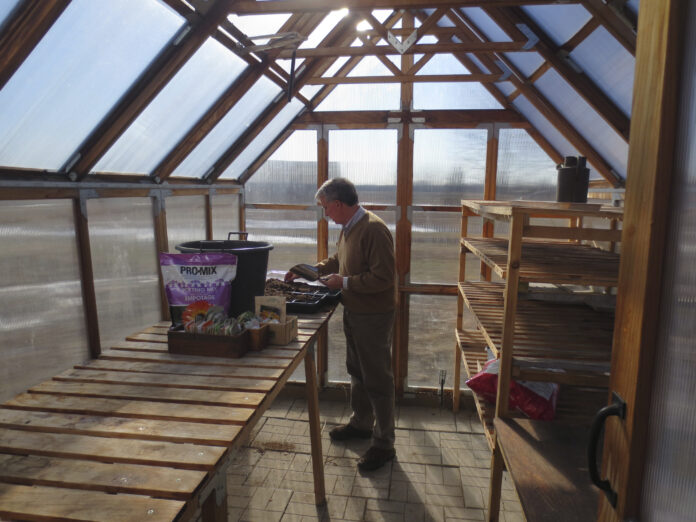by Mark and Ben Cullen
What spring season was more anticipated than this one? Perhaps in 1919, during the last pandemic, when people were sequestered in their homes for the winter. Sound familiar?
It has likely been over a hundred years since we last approached the season of renewal, spring, with such enthusiasm.
Thus, our opportunity to squeeze much more gardening from the month of April than you likely realize. By “squeeze” we mean enjoy, well before what has traditionally been the start of the gardening season in May.
Sow and Grow
Start vegetable and flowers seeds indoors now. Just about all the seeds that you bought a month ago, when we urged you to acquire your supply early due to unprecedented demand (you did that, right? If not, make that job #1 now), can be sown now. Frost tender flowers like marigolds, alyssum, zinnias, cosmos and a host more should be started in the next couple of weeks either under grow lights or in a sunny window. Same with tubers of dahlias and tuberous begonias.
There are many opportunities to sow crops directly in your garden. Onions by seed and bulb, carrots, beets, kale, radishes, Swiss chard and peas can be sown now. Prepare the soil by turning it with a garden fork or spade once, bang the clumps out of it and add lots of compost. For root crops, add generous quantities of sharp (sand box) sand at least 30 cm deep to open the soil up and improve drainage.
Wait a few more weeks for flowers that are cold hardy, as we do expect frost for the next 6 weeks in the GTA (zone 6 and north of Highway 7, zone 5). Sow calendula (pot marigold), dusty miller and alyssum outdoors any time from April 15 onwards.
Plant. While we wait in great anticipation of the Japanese Cherry blossom show in High Park, with fingers crossed that we will be allowed to access this magnificent display this year, we remind you that all woody, winter hardy plants are good to go for April planting.
If the plant is dormant and leafless when you buy it you know that it is in its natural state, versus forced in a greenhouse. It is important to know the difference. A plant that is in full leaf is soft and susceptible to frost damage. A dormant tree, shrub or rose plant is naturally protected from temperatures below 0 Celsius. It might not be as attractive, but it will transplant more easily.
Perennial divisions from your own garden or that of a friend or neighbour, can be planted now. Again, if you are shopping for perennials and they have soft green foliage or flowers, it is best not to plant them yet as the new growth is frost tender. But a dormant hosta or rhubarb root is safe. This is the perfect time of year to move most herbaceous perennials around your yard or divide the mature ones and give away the divisions.
Prune fruit trees. Apples, peaches, plums, cherries: most fruit trees respond best to an early spring pruning. Open up the crown of a maturing fruit tree by removing the tangle of branches in the middle and allow the sun and wind to filter through the crown of the tree. This will maximize the fruit bearing potential. The fruit that you harvest will be larger, on average, with pruning. Most hobby gardeners are too shy about pruning fruit trees.
As a rule of thumb, we remove up to one third of the growth, concentrating on the upright growing water sprouts and the criss-crossing branches in the interior of the tree. A great website for more information about fruit trees is https://orchardpeople.com/.
Perennial food plants. Asparagus, grapes, raspberries, strawberries, and the like, are best planted in April, while they are dormant. Buy strawberry plants as one year old roots and plant in compost-rich soil about 30 cm apart.
Raspberries are usually sold as rooted cuttings, about 30 cm high. Plant them out about 50 cm apart.
It is early April. You can grow now.
Mark Cullen is an expert gardener, author, broadcaster, tree advocate and Member of the Order of Canada. His son Ben is a fourth-generation urban gardener and graduate of University of Guelph and Dalhousie University in Halifax. Follow them at markcullen.com, @markcullengardening, and on Facebook.


